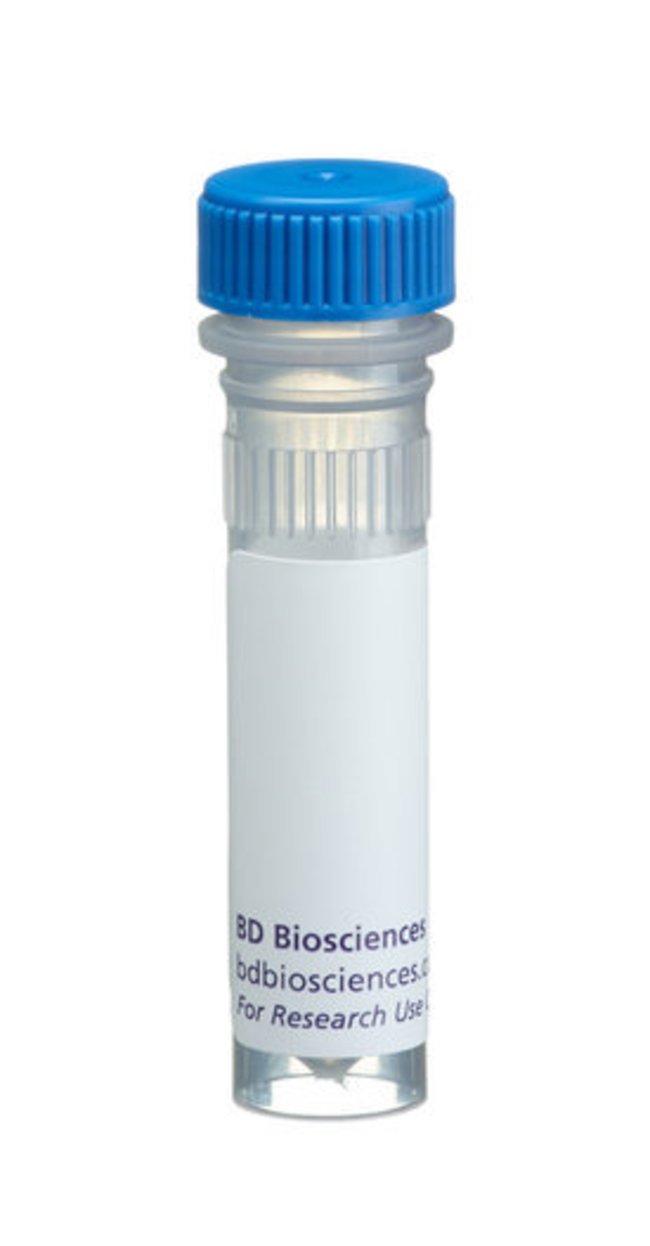CD19 Rat anti-Mouse, Unlabeled, Clone: 1D3, BD, Rat Monoclonal Antibody, Each

Details:
The 1D3 antibody reacts with CD19, a B lymphocyte-lineage differentiation antigen. CD19, a 95kDa transmembrance glycoprotein, is a member of the immunoglobulin superfamily and is expressed throughout B-lymphocyte development from the pro-B cell through the mature B-cell stages. Terminally differentiated plasma cells do not express CD19. On the surface of mature B cells, the CD19 molecule associates with CD21 (CR-2) and CD81 (TAPA-1), and this multimolecular complex synergizes with surface immunoglobulin to promote cellular activation. Studies with CD19-deficient mice have suggested that the level of CD19 expression affects the generation and maturation of B cells in the bone marrow and periphery. B-1 lineage B cells, also known as CD5 B cells, are drastically reduced or absent in CD19-deficient mice.Increased levels of CD19 expression correlate with increased frequencies of peritonal and splenic B-1 cells and reduced numbers of conventional B lymphocytes in the periphery. CD19 participates in B-lymphocyte development, B-cell activation, maturation of memory B cells and regulation of tolerance. CD19 has also been detected on peritoneal mast cells, co-localized with CD21/CD35, and it is proposed to play a role in complement-mediated mast-cell activation. This antibody is routinely tested by immunohistochemistry. Other applications were tested at BD Biosciences Pharmingen during antibody development only or reported in the literature.
Additional Information
| SKU | 10133134 |
|---|---|
| UOM | Each |
| UNSPSC | 12352203 |
| Manufacturer Part Number | 550284 |

